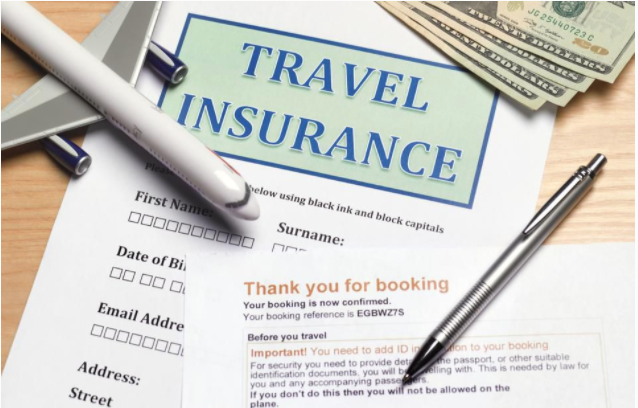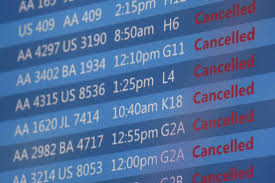I’m Planning my trip back to Cozumel, do I need Trip Insurance?
 As more and more folks are planning their trips back to Scuba Shack Cozumel, Village Tan Kah and Cozumel, and all the uncertainty around COVID I’ve been getting more and more questions about purchasing insurance prior to the trip. Unfortunately, there is no straight forward, right or wrong answer here. There are many many factors that come into play and you must consider. But, the number one piece of advice I can give you is, READ ALL THE FINE PRINT. Whether it’s the airlines, rental car companies or other companies involved in your travel plans, read all their fine print, understand all their conditions and if you still don’t know, call them. Speak to some directly so that you can ask a direct question and get a direct answer. BTW, I’ve provided my terms and conditions below, so keep reading.
As more and more folks are planning their trips back to Scuba Shack Cozumel, Village Tan Kah and Cozumel, and all the uncertainty around COVID I’ve been getting more and more questions about purchasing insurance prior to the trip. Unfortunately, there is no straight forward, right or wrong answer here. There are many many factors that come into play and you must consider. But, the number one piece of advice I can give you is, READ ALL THE FINE PRINT. Whether it’s the airlines, rental car companies or other companies involved in your travel plans, read all their fine print, understand all their conditions and if you still don’t know, call them. Speak to some directly so that you can ask a direct question and get a direct answer. BTW, I’ve provided my terms and conditions below, so keep reading.
There is a difference between dive insurance and trip insurance. Some companies that provide dive insurance also provide trip insurance and vice versa. Here a couple things to be cautious about here:
- If purchasing dive insurance from a company that does not specialize in dive insurance, but is more of a trip insurance company, make sure to check the fine print on their depth limit coverage. Companies that specifically provide dive insurance will generally cover you for a diving related accident if you are within recreational limits (and have a certification that qualifies you to dive to that depth). Companies that specialize in trip and insurance and offer “dive” insurance as an add on, well let’s just say what they do and do not cover doesn’t not seem to stack up and I’ve seen some that in the fine print won’t cover a dive related injury below 10 meters. If you want to purchase dive insurance (which I strongly recommend every diver have) purchase it from a company that specializes in dive insurance.
- Most of the reputable dive insurance companies also offer trip insurance. As for that, I’ll say the same thing I’ve said before, read the fine print. One thing I can tell you is that Divers Alert Network (DAN) is no longer offering trip insurance. If you have coverage on a DAN plan through all or most of 2020 that would normally include trip insurance, check with DAN as to whether or not they are honoring your trip insurance.
In the course of putting this article together I researched and read the fine print of a number of the more popular trip insurance companies. I’m not going to recommend a specific company or companies. Their too many differing factors including, your country of origin, price, personal preferences and this stuff changes all the time. Instead what I’ll try to do is provide you some guidance and information to help you in your research.

As you are researching this for your trip, here are the things for you to consider:
- Read the COVID statement as provided by the trip insurance company. If they don’t have a specific COVID statement on their website that is clear, call them and ask prior to purchasing anything. A number of trip insurance companies will provide coverage for illness either prior to or during your trip, HOWEVER, they exclude COVID from this. I found this statement buried in the fine print of one providers coverage that said they covered for illnesses.
“The coronavirus known as COVID-19 was declared a pandemic by the World Health Organization. Our plans do not provide coverage for losses due to or as a result of COVID-19, including trip cancellation, trip interruption, trip delay, medical expenses, or emergency medical transportation. “
- If you have already booked and paid for any portion of your trip and you are not looking at trip insurance, will any of that be covered? Make sure you look for information on Current Purchase and Past Purchases, especially if you’ve already purchased. Most of them will start something like this; “Programs purchased before (and they will specify a date) may be eligible for trip cancellation/interruption due to COVID-19…”
- Your country of origin and your country of destination. This is very important. I found at least one company that was UK based that would not cover a US Citizen traveling to Mexico but would cover a US Citizen traveling to certain parts of Europe, but it appeared they would sell me trip insurance for any trip regardless. So make sure you are covered based on your country origin and your country of destination.
- Check with the credit card(s) that you use to purchase your airline tickets or other accommodations on, as they may also offer trip protection.
Now for all the “IF’s” and “OR’s” – make sure you look at your policy for the following conditions.
PRIOR TO TRAVELING:
- What if I test positive for COVID more than 14 days prior to my trip and wish to cancel? – It seemed a number of providers, that did not have specific statements saying they would not cover COVID, would cover you in this circumstance, however, you need to provide them with proof of the positive test.
- What if I test positive for COVID and it is less than 14 days to my departure date? – This was less clear across the board but it seemed like most providers would not cover. Check their fine print.
- What if a family member who is not an insured person under the policy tests positive for COVID and you have to cancel your travel plans? – The one thing that is for certain with this one is the part of “a family member who is not an insured person…” Everything that I looked at was clear – that they would not cover any part of the trip for this. So if you’re traveling as a family make sure all family members are on the trip insurance policy. What is less clear across the board is the timing of when the family tested positive in relation to the departure date. So, check the fine print.
- It was not clear in any of the information I looked at whether or not a person has to be a direct family member to be listed on your policy. So, you may want to check that as well.
- I have chosen to or have been told to self-isolate (by a medical professional) because I have been exposed to someone with COVID or have COVID symptoms but have not received a positive test. I want to cancel my trip – is it covered? – There are numerous different scenarios around this question, regardless of the timing in relation to your departure date, all the companies I looked at seemed pretty clear. No positive test, no coverage.
- My country of origin or destination changes its advice in relation to entry or exit requirements and now I can’t travel there. Is this covered? – Again there are a few variables, but surprisingly it seems like most policies WILL NOT cover for this circumstance. Again, my advice, read the fine print.
WHILE TRAVELING:
Several of the policies I looked at outlined these scenarios (and many more) for circumstance prior to traveling and while traveling. The same thing seemed to remain clear for the “while traveling…” conditions; If you or an insured person on your policy test positive for COVID while traveling, you are covered. If there is no positive test or there is some other interruption due to COVID, you are NOT covered. Some examples where you would not be covered are:
- A tour operator or travel accommodations provider makes a change because of COVID, you would not be covered.
- Your flight to or from your destination is delayed because of COVID circumstances causing a delay that then impacts your trip, this is NOT covered by most providers.
Make sure you read the fine print!
AIRLINES:
First of all, understand the policy of your airline, regardless of whether or not you have trip insurance –
- Know their travel policies in regards to face masks, social distancing, seating, families and if you are traveling with small children.
- Know their policies for canceling for if you or a family member test positive COVID (see scenarios above).
VILLAGE TAN KAH and SCUBA SHACK POLICIES (our fine print)
Please understand that we are a small hotel with restricted access. If we are full (or at COVID capacity limits) we may have had to move other guests to nearby hotels to accommodate them. So, changes and cancelations have a spiraling affect for us. Prior to COVID our policy was you needed to notify us more than 30 days prior to your scheduled arrival of any changes or cancelations. If you have to cancel prior to 30 days from your scheduled arrival you’ll receive a credit with us for the amount that we will retain until you can schedule your return visit. If you cancel within less than 30 days of your scheduled arrival there is no refund for the cost of the room. Officially this is still our policy. We understand that these are challenging and uncertain times, and things can change quickly. So, we simply ask that our guests communicate any changes with us as soon as possible so that we may best accommodate you, current guests and guests that may be on a wait list. We will make every effort to assist you if you need to make changes. If you are still uncertain, well, this is why I’m offering advice on trip insurance too.
A LITTLE HISTORY:
 You would think that the concept of trip insurance is a fairly modern concept, but in actuality the worlds first insurance agency for travel was founded in 1864 it was called Traveler’s Insurance Company. Yes, that’s right, the same company we see today with the little red umbrella as it’s logo. James Batterson, the founder, was a New England business man known for his granite and marble businesses before getting into the insurance business. Traveler’s is now incorporated in St. Paul, MN when, in the early 2000’s the St. Paul Fire and Marine Company (aka St. Paul Companies, or just The St. Paul) purchased Traveler’s Insurance. Ever since its inception, travel insurance has been an important means to, for just pennies on the dollar, insure goods or persons as they travel. In recent years trip insurance has seen a dramatic rise in popularity due mostly in part to airlines refusal to compensate travelers for lost luggage, and delayed or missed travel plans due to canceled flights, delays and missed connections. But now in the COVID era, most (if not all) U.S. based airlines have waived changed fees and made it MUCH MUCH easier for travelers to change flight plans on a whim. So make sure to check with your airline prior to making reservations and after on their policies for changes, cancelations, refunds or credits, etc. etc.
You would think that the concept of trip insurance is a fairly modern concept, but in actuality the worlds first insurance agency for travel was founded in 1864 it was called Traveler’s Insurance Company. Yes, that’s right, the same company we see today with the little red umbrella as it’s logo. James Batterson, the founder, was a New England business man known for his granite and marble businesses before getting into the insurance business. Traveler’s is now incorporated in St. Paul, MN when, in the early 2000’s the St. Paul Fire and Marine Company (aka St. Paul Companies, or just The St. Paul) purchased Traveler’s Insurance. Ever since its inception, travel insurance has been an important means to, for just pennies on the dollar, insure goods or persons as they travel. In recent years trip insurance has seen a dramatic rise in popularity due mostly in part to airlines refusal to compensate travelers for lost luggage, and delayed or missed travel plans due to canceled flights, delays and missed connections. But now in the COVID era, most (if not all) U.S. based airlines have waived changed fees and made it MUCH MUCH easier for travelers to change flight plans on a whim. So make sure to check with your airline prior to making reservations and after on their policies for changes, cancelations, refunds or credits, etc. etc.
PHOTO CREDIT: Chad Jacobs
SUMMARY:
So, as you prepare to book your trip(s) back to see us here at Village Tan Kah and Scuba Shack Cozumel and are trying to decide whether or not to buy trip insurance, remember to this:
- Take into account the total amount of your trip.
- Look at the airlines COVID policies
- See our policies
- Read the fine print of the coverage you are considering
- Look at your own likelihood of COVID affecting you or affecting a loved one that then in turn would affect your trip.
- Consider the cost of the trip insurance
- Then based on that likelihood and what your trip insurance will cover, decide whether or not you can afford to lose the money you’ve invested in the trip and if the cost for the insurance is a good bet to help protect your investment.
Stay healthy, stay safe, travel smart and we hope to see you soon!!!

